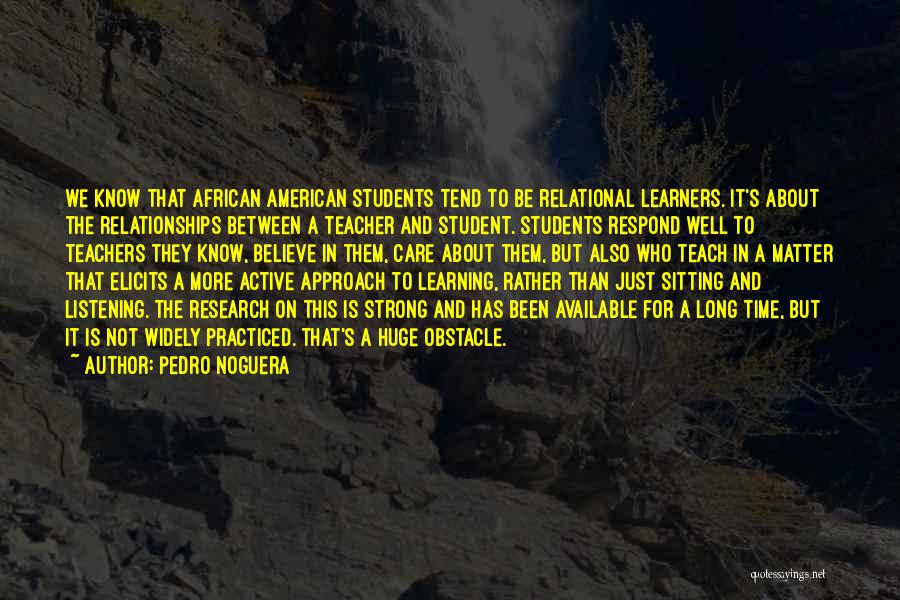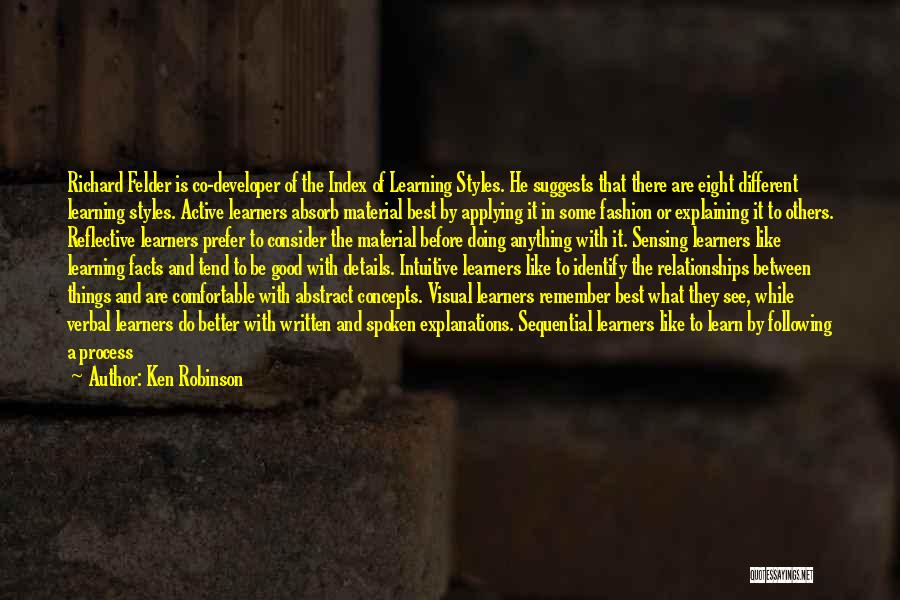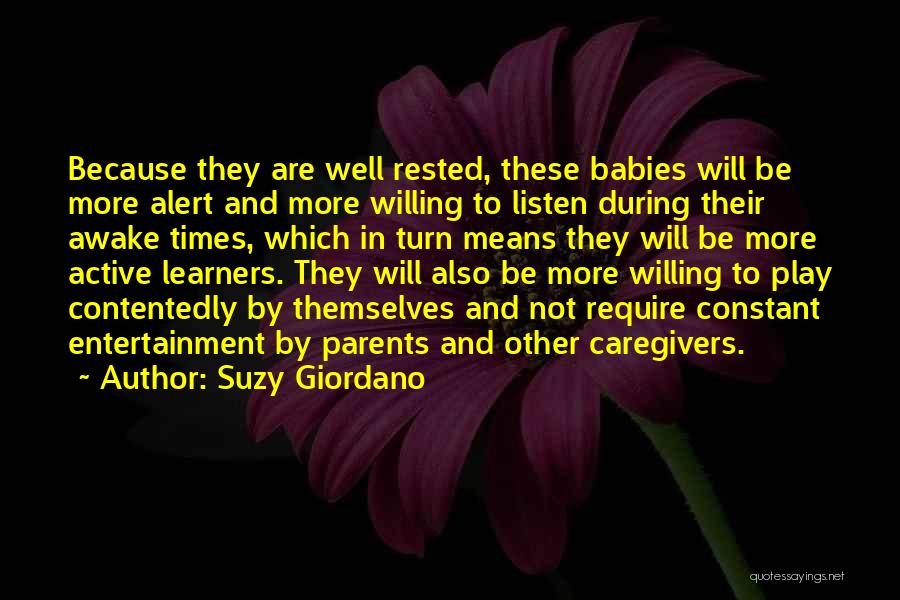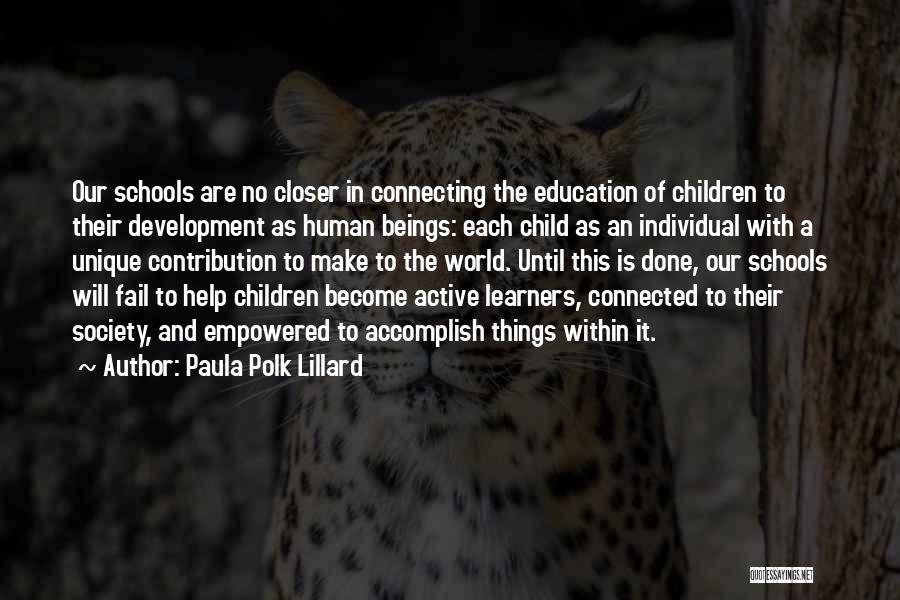Quotes & Sayings About Active Learners
Enjoy reading and share 4 famous quotes about Active Learners with everyone.
Top Active Learners Quotes

We know that African American students tend to be relational learners. It's about the relationships between a teacher and student. Students respond well to teachers they know, believe in them, care about them, but also who teach in a matter that elicits a more active approach to learning, rather than just sitting and listening. The research on this is strong and has been available for a long time, but it is not widely practiced. That's a huge obstacle. — Pedro Noguera

Richard Felder is co-developer of the Index of Learning Styles. He suggests that there are eight different learning styles. Active learners absorb material best by applying it in some fashion or explaining it to others. Reflective learners prefer to consider the material before doing anything with it. Sensing learners like learning facts and tend to be good with details. Intuitive learners like to identify the relationships between things and are comfortable with abstract concepts. Visual learners remember best what they see, while verbal learners do better with written and spoken explanations. Sequential learners like to learn by following a process from one logical step to the next, while global learners tend to make cognitive leaps, continuously taking in information until they get it. — Ken Robinson

Because they are well rested, these babies will be more alert and more willing to listen during their awake times, which in turn means they will be more active learners. They will also be more willing to play contentedly by themselves and not require constant entertainment by parents and other caregivers. — Suzy Giordano

Our schools are no closer in connecting the education of children to their development as human beings: each child as an individual with a unique contribution to make to the world. Until this is done, our schools will fail to help children become active learners, connected to their society, and empowered to accomplish things within it. — Paula Polk Lillard





